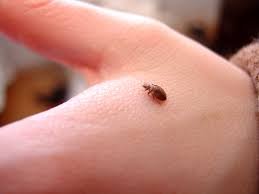Picture this: You’re lying in bed, ready to drift off into a peaceful slumber after a long day. But just as you start to relax, an unwelcome visitor decides to join you – the dreaded bed bug. These tiny pests may be small in size, but they can cause big problems. From itchy bites to sleepless nights, dealing with bed bugs is no picnic. In this blog post, we’ll dive into the world of these pesky critters and explore how to diagnose and treat their bites effectively. So grab your magnifying glass (and maybe some bug spray), because it’s time to tackle those annoying bed bugs head-on!
How do you know if you have bed bugs?
You may be wondering, how do you know if you have bed bugs? Well, these blood-sucking pests are not always easy to detect. One telltale sign is waking up with itchy red welts on your skin. Bed bug bites can appear in a straight line or clustered together and are often accompanied by intense itching.
Another clue that you might have bed bugs is finding tiny brownish stains on your sheets or mattress. These marks could be the result of bed bug feces which contain digested blood.
If you suspect a bed bug infestation, it’s time to play detective! Grab a flashlight and start inspecting your bedroom. Look closely at the seams and crevices of your mattress, as well as any cracks in the walls or furniture near your sleeping area.
Don’t forget to check for other signs such as shed exoskeletons or even live bed bugs themselves. These sneaky critters like to hide in dark places during the day but become more active at night when they come out to feed on unsuspecting victims (that’s us!).
Remember, detecting bed bugs early is crucial for effective treatment and prevention of further infestations. So don’t hesitate to thoroughly investigate if you suspect these unwanted guests have invaded your home!
How to check for bed bugs
Bed bugs are small, reddish-brown insects that feed on the blood of humans and animals. They can be found in your home, particularly in places where people sleep or rest. If you suspect a bed bug infestation, it’s important to know how to check for them.
Start by examining your mattress and bedding. Look for any signs of tiny black dots or smears on the sheets, which could indicate bed bug droppings. You should also look for rusty-colored stains on your mattress or box spring, as these may be caused by crushed bed bugs that have fed.
Next, inspect the seams and crevices of your mattress for live bed bugs or their eggs. Use a flashlight to get a better view if needed. Bed bugs are about the size of an apple seed and can hide in even the tiniest cracks.
Don’t forget to check other areas near your sleeping area as well. Look behind headboards, under furniture cushions, and along baseboards for any signs of bed bugs.
If you find evidence of an infestation, it’s best to consult with a professional pest control company who can advise you on proper treatment options.
Remember that early detection is key when dealing with bed bugs. By knowing how to check for them regularly, you can help prevent a full-blown infestation from occurring in your home.
Treating bed bug bites
Treating bed bug bites can help alleviate discomfort and prevent further complications. While the bites themselves are generally not serious, they can cause itching, redness, and swelling. Here are some tips for treating bed bug bites:
1. Clean the affected area: Start by washing the bite with mild soap and water to remove any dirt or bacteria that may have been introduced into the skin.
2. Apply a cold compress: Placing a cold compress or ice pack on the bite can help reduce inflammation and soothe itching. Be sure to wrap it in a cloth to protect your skin from direct contact with the ice.
3. Use over-the-counter creams or ointments: There are various topical treatments available at pharmacies that can provide relief from itching and promote healing. Look for products containing ingredients like hydrocortisone or calamine lotion.
4. Resist scratching: It’s important to resist scratching bed bug bites as this can lead to infection or scarring. If necessary, consider wearing gloves during sleep to prevent unconscious scratching.
5. Take antihistamines if needed: In some cases, bed bug bites may trigger an allergic reaction characterized by severe itchiness or difficulty breathing. In such instances, taking over-the-counter antihistamines can offer relief.
Remember, while these measures may help alleviate symptoms temporarily, it is crucial to address the underlying infestation by contacting professional pest control services for effective eradication of bed bugs in your home.
At-home treatment
At-home treatment for bed bug bites can provide relief and help reduce itching and discomfort. While these methods may not eliminate the infestation entirely, they can certainly offer some relief while you seek professional assistance.
To treat bed bug bites at home, start by cleaning the affected area with mild soap and water to prevent infection. Applying a cold compress or ice pack wrapped in a cloth can help reduce swelling and soothe the itchiness. Over-the-counter topical creams or ointments containing hydrocortisone can also provide temporary relief from itching.
Taking antihistamines such as diphenhydramine (Benadryl) or applying calamine lotion can further alleviate itching symptoms. It’s important to avoid scratching the bites, as this could lead to infections or scarring.
Additionally, washing your bedding, clothing, and any potentially-infested items in hot water will help kill any remaining bed bugs or eggs. Vacuuming your mattress, carpets, and furniture thoroughly is also recommended to remove any hiding pests.
Remember that treating bed bug bites at home should be done in conjunction with professional pest control measures. If you suspect a bed bug infestation in your home, it’s crucial to contact a licensed exterminator who has experience dealing with these resilient pests.
By combining both at-home treatments for immediate relief and professional intervention for long-term eradication of bed bugs from your living spaces, you’ll be on track towards regaining peace of mind and a good night’s sleep free from those pesky insects!













Got a Questions?
Find us on Socials or Contact us and we’ll get back to you as soon as possible.